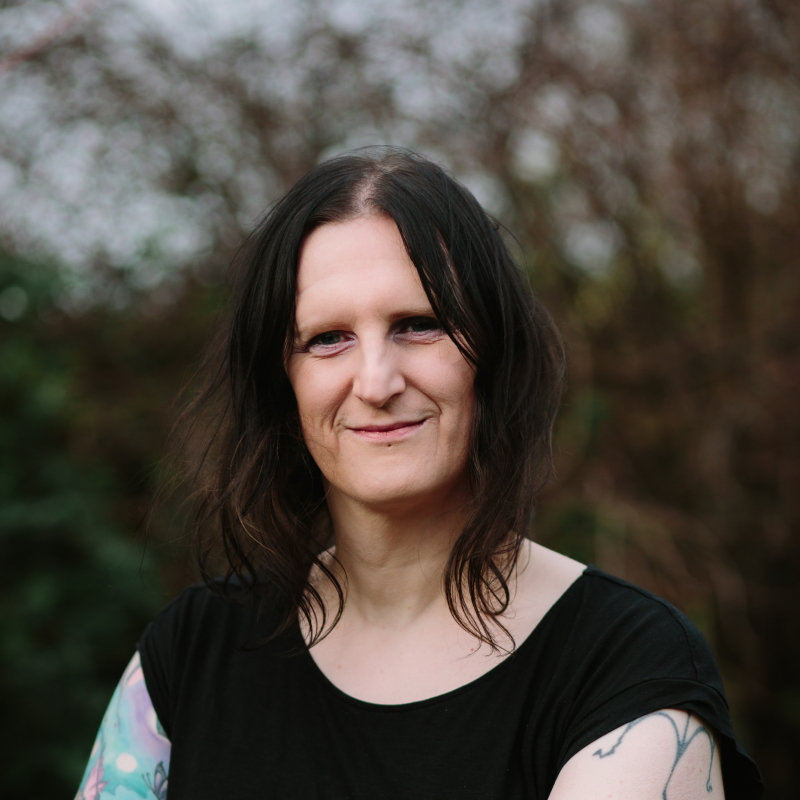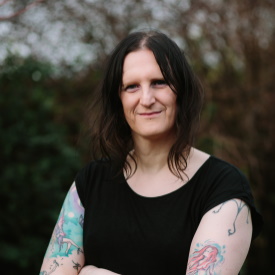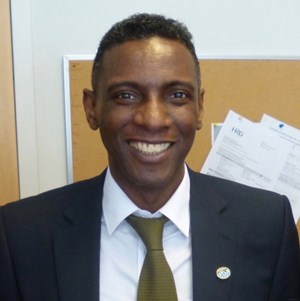In recognition of Transgender Awareness Week, Dr Clara Barker reflects on the intersection of science, identity, and the influence of anti-science rhetoric on both.

The first time I visited the Royal Society was as a panelist discussing LGBTQ+ life in STEM, as part of the Summer Science Exhibition 2018. It coincided with the London Pride event taking place the same day. Whilst it was a little inconvenient to get to the building, there was a vibrant spirit in the city. The Society itself was packed with exhibitions and visitors, and two of my identities were fused together.
There is a push to keep identity politics out of STEM – to keep those parts of my identity separate. I have talked before about how it is not so simple: I am trans. Sure, on most days I can simply be a scientist, but on some days I cannot; whether it is comments or sneers across a meeting table, old collaborators no longer wanting to work with me, or having to consider where I travel for collaborations or conferences. I’d like to think this doesn’t happen in science, but that is simply not true. Yes, I have leaned into this part of myself. I have given international keynote talks, been profiled in Nature and children’s STEM books, and given a TEDx talk. I do it not because I am an extrovert (believe it or not, the opposite is true), but because I believe in the power of different role models welcoming more young people into the wonderful world of science. Throughout the panel we could hear the cheers from the Pride crowd. I am always happy to be speaking at the Society, but it added an extra something that day.
Suddenly, the noise ‘down the road’ changed. From cheers to boos. We had no idea what had happened. A group had forced their way into the front of the parade – a group that called for the exclusion of trans and non-binary people from Pride events.
What does this have to do with science? We are told to collect data, analyse it. Listen to experts. If one-point deviates from the 100 other data points, we treat it as an outlier. Yet conversations about trans people tend to ignore the views of scientific experts. Outliers are treated as trends. Internet articles are equated to Nature articles. Scientists from different disciplines are considered more ‘honest’ than topic experts.
This talks to a general distrust in science and scientists. As with environmental change, vaccines and chemtrails. We all have our personal views, and this is what makes society diverse and interesting. The internet gives anyone a voice, people who agree amplify that voice and news outlets treat those views as equal to the careful consideration of scientists and medical experts. As scientists, we need to be more critical. Understand the expertise of the people speaking, where their views come from. If we stop listening to people critically, accepting things that are said without suitable academic rigour, we lose academic integrity. Not standing up for this process leads to further distrust of science and scientists.
I am transgender. I knew this growing up, even though there was very little awareness in the 1980s/90s. Supressing who I am had a detrimental impact on my mental health. Later, the lack of LGBTQ+ role models in STEM made me believe I could not stay in my field. Now, I have people question whether I, a scientist in my 40s, am deluded for transitioning or talking about the positive impact it had on my quality of life. But I speak from my experience. It is not unreasonable that others would have a similar path, but that this is not true for everyone. I do not blindly campaign for quick, unquestioning medical intervention for trans and non-binary people of different ages. I pay attention to the research from medical and psychology experts. Yet academics from other fields attack the integrity of medical studies into supportive trans healthcare, and geneticists are attacked for stating that sex is less binary than many believe.
If we question the integrity and research of our experts from different fields, it becomes easier to question any and all scientific research. It is no wonder people took to distrust when COVID vaccines were rolled out. Researchers are being bullied out of sciences based on opinions and if anything we need more experts, more research to ensure we are doing the right thing. We can ask how data was gathered and conclusions drawn, but we have to trust their academic rigour and ethics. That they are making the right recommendations based on the research available. We need to support our experts to regain public trust.
The boos from the crowd at that Pride event demonstrated that not everyone has the same views. The protestors passed and the cheers quickly resumed. Many people are supportive of trans inclusion. We are also seeing a challenge to trans-medical experts by a minority, but I hope that we will start trusting those experts again. Whether you support trans rights or not, how we handle the topic will impact science across the board, or else before long we will be throwing out the theory of evolution, saying dinosaurs are fake, the world is flat, and aeroplanes cannot fly.






